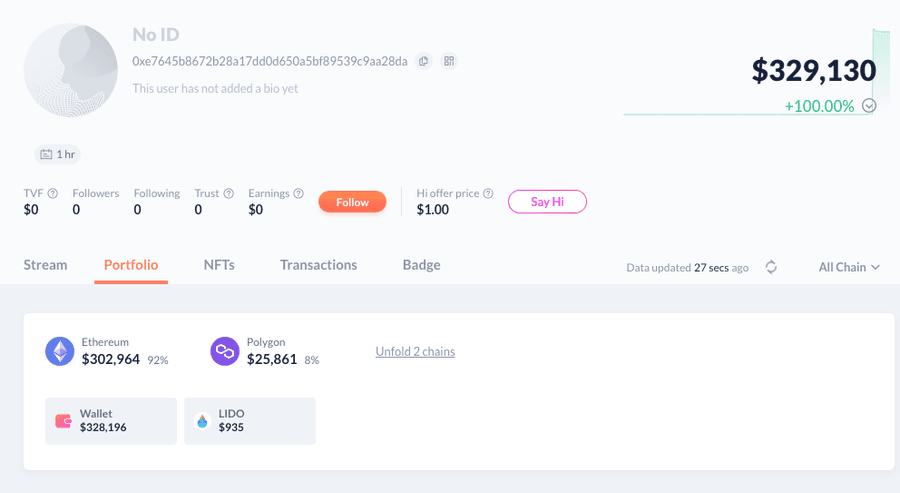MicroStrategy, the world’s largest corporate Bitcoin holder, fell victim to a cyberattack on its X account on February 26th when hackers posted a message promoting a fake token called “MSTR,” leading to the theft of almost $500,000 in cryptocurrency. Since then, the post has been removed.
Related: There’s No Trust Between Colleagues. You Can Lose $25 Million On The Call!
The Essence of the Scam
Scammers hacked into MicroStrategy’s business analytics company’s X account and posted malicious links on it. Hackers tried to trick users into believing that MicroStrategy was distributing a new Ethereum-based token called MSTR. By clicking on the provided link and entering their credentials, scammers would gain access to the “free MSTR” scam.
The user who clicks the link lands on a webpage impersonating MicroStrategy, which prompts them to connect their wallet and claim the fake MSTR giveaway. Once users grant a series of permissions in their Web3 wallet, it becomes apparent that the scammers can automatically drain tokens from the user’s wallet.
Related: Canada’s Concerns on AI-Generated Deepfake Disinformation Campaigns
While the full extent of the hack remains uncertain, according to independent blockchain expert ZachXBT and anti-fraud platform Scam Sniffer, losses from the scam have already exceeded $440,000.
An Unknown Person Suffered More Than $420k
An unknown individual lost over $420,000 in total due to phishing fraud around 12:43 Coordinated Universal Time, just minutes after the first malicious link was posted on MicroStrategy’s X account.
The unidentified user lost $424,786 in altcoins, with one transfer sent to a MicroStrategy impersonator and two automatically redirected to a second wallet associated with the infamous hacker group PinkDrainer.
An unknown victim fell for a transaction, sending $134,000 worth of Wrapped Balance AI (wBAI), $122,000 of Chintai (CHEX), and $45,000 of Wrapped Pocket Network (wPOKT) to the hacker’s wallet address.
As of the time of publication, the Ethereum DeBank data indicates that the hacker’s MicroStrategy wallet address contains Ethereum-based tokens amounting to $329,000. Transaction records associated with the suspected hacker’s address indicate that a significant portion of the stolen funds were laundered through transfers to various exchange platforms, including KyberSwap, ParaSwap, and POKT Network.

Crypto industry experts were quick to point out the obvious nature of the scam: British crypto investor, going by the pseudonym Kobe, noted that MicroStrategy, a company exclusively focused on bitcoins, is unlikely to launch a token on Ethereum.
Well, it’s obvious I’m not trying to blame the victim here, but you’ve got to be a special kind of optimistic to think MicroStrategy is launching an ETH token after Saylor spent years coolly preaching ‘There is no second best,’ ‘You only use one chair,’ and so on.
The latest event occurred just days after MicroStrategy founder Michael Saylor reaffirmed his commitment to holding significant reserves of the company’s bitcoins, which currently exceed 190,000 BTC, valued at over $9.7 billion. At the time of publication, MicroStrategy had not made any official statements regarding the incident.
More Info:
- Cheat Sheet for a REAL Crypto Criminal: Your Guide to Crypto Crime Terminology
- Crypto Kids Gone Wild: Canadian Teens Steal $4.2M as Coinbase Support
According to Scam Sniffer’s 2023 report, phishing campaigns targeting crypto wallets resulted in the theft of nearly $300 million, affecting over 324,000 victims. The trends indicate no indication of slowing down, with fresh drainers emerging to take the place of the old ones. Stay vigilant and informed.
Disclaimer: All materials on this site are for informational purposes only. None of the material should be interpreted as investment advice. Please note that despite the nature of much of the material created and hosted on this website, HODL FM is not a financial reference resource and the opinions of authors and other contributors are their own and should not be taken as financial advice. If you require advice of this sort, HODL FM strongly recommends contacting a qualified industry professional.




